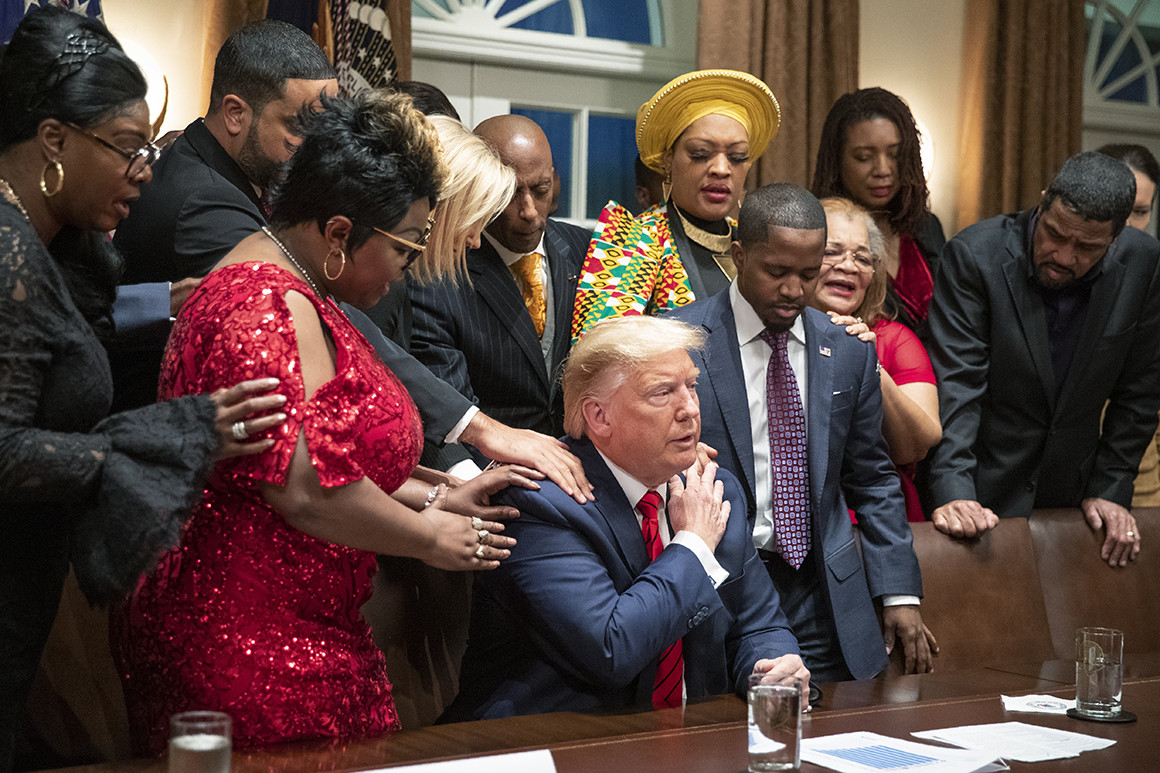(ThyBlackMan.com) At what point did a college education become completely worthless to the collegiate athletes walking around on college campuses throughout the country? A few weeks have already passed in the 2011 football season and it still seems like more and more college football scandals are revealed and investigations seem to be ongoing. Athletes continue to constantly accept benefit after benefit along with violating many of the other rules. It always makes me wonder about the values of the NCAA athlete and whether or not they really think they are students or professionals.
It is important to go back to what the original concept of an athletic scholarship is. If a school identifies a talented athlete that has caught their interest and can qualify academically, the athlete is able to attend the school  for free in exchange for competing for the school athletically. Oversimplified? Perhaps. That is the essence of the athletic scholarship, though. Of course, I am not completely naïve, as the schools with elite football and basketball programs will generate millions in profits from these teams. Thus, it is an investment for the school, and they expect to get some return on their investment. Regardless of whether or not anyone thinks this is fair, that is completely understandable. Anybody who makes an investment wants, and expects, to have a significant return on their investment. However, the fact that the schools may benefit more from this exchange is not what is disappointing. The disappointment lies in the fact that collegiate athletes do not take advantage of the opportunity that is given to them through this exchange.
for free in exchange for competing for the school athletically. Oversimplified? Perhaps. That is the essence of the athletic scholarship, though. Of course, I am not completely naïve, as the schools with elite football and basketball programs will generate millions in profits from these teams. Thus, it is an investment for the school, and they expect to get some return on their investment. Regardless of whether or not anyone thinks this is fair, that is completely understandable. Anybody who makes an investment wants, and expects, to have a significant return on their investment. However, the fact that the schools may benefit more from this exchange is not what is disappointing. The disappointment lies in the fact that collegiate athletes do not take advantage of the opportunity that is given to them through this exchange.
As an example, the total estimated cost of attendance (tuition, room and board, fees, etc.) at the University of Southern California, which is my alma mater, is $57,876 for the 2011-2012 school year, and the cost continues to go up every single year. For a full scholarship athlete, the cost of attendance is absolutely free. They are given the opportunity to receive an education and a place to live for four or five years, all of which is valued at well over $200,000. In addition to the covered cost of attendance, they also receive a generous stipend every single month. While most other colleges are not quite this expensive to attend, it does not change the fact that scholarship athletes across the entire country are receiving educational opportunities that are valued at tens or hundreds of thousands of dollars completely free of charge. For some reason, though, this is not good enough for the collegiate athlete. Because athletes see their jerseys for sale in stores everywhere and because they sell out stadiums and arenas, they figure they are also entitled to receive money or other benefits, too, as they constantly violate the rules by accepting benefits they know they should not be taking. Does anybody really believe these students think about the monetary value of their education or the educational opportunity they are wasting when they decide to violate the rules and accept benefits?
Most collegiate athletes are simply using their scholarship as an opportunity to become a professional athlete and nothing else. They are known for parading around campus like celebrities in addition to being known for declaring “easy” majors like sociology or history. Although I do not believe there is a such thing as an “easy” major, there is a major difference between choosing to major in a subject because you have a genuine interest in it and want to do something with it in the future versus choosing a major (or even guided into a major by the athletic administration) because you think the coursework is not challenging and want to ensure you remain academically eligible to compete in your sport.
Once the opportunity to turn professional comes up, many of these athletes do not hesitate to take advantage of the opportunity, even if they are not quite ready athletically; graduating and obtaining their degree is usually one of the last things they think about when it comes to making the decision to turn professional. I have heard all of the excuses in the world as to why they decide to turn professional early. Some will tell you directly to your face they are not concerned about school whatsoever and they were simply waiting for the first opportunity to leave. Some argue that college students go to college in order to ensure they make more money. Therefore, they feel if the opportunity to turn professional and become rich arises, they need to take advantage of the opportunity now and “get paid.” Some argue they cannot take the risk of injuring themselves by staying in school while others argue that school is not for everyone. Many argue that they can always come back to school and finish their classes (I dare somebody to do a study on how many professional athletes have gone back to finish their degrees). And my absolute favorite argument (and the easiest one to hide behind) is that turning professional is best for them and their family. While I am in no position to assess a family’s financial situation, I seriously doubt that another year or two of remaining in college to earn your degree is the “make it or break it” moment in their family’s financial situation. For some of them, the context of doing what is “best” for their family is giving their family a chance to drive a Mercedes-Benz instead of a Honda Accord, or live in a mansion instead of a 3-bedroom house.
Think about how many students stand in line at the cashier’s office with an unpaid balance during the first few weeks of school. Think about the student that has to apply for thousands in student loans to finish paying for the school year. Think about the student who does not even qualify to receive a significant amount of financial aid because their parents make a little bit too much money. How about the student that has to go to school full-time and participate in work-study in order to make sure their tuition is paid? How about the walk-on athlete who has to pull “all-nighters” to complete their work because they have to work in addition to attending practice and going to class? Sometimes, non-scholarship students have to endure some difficult challenges to ensure they get the chance to walk across the stage and receive their degree. I can definitely relate, as I was a walk-on athlete. I had many challenges and struggles just like so many other students, and I definitely had my fair share of Top Ramen noodles and instant burritos. Thus, it did used to leave me scratching my head when I saw scholarship athletes complaining their stipend was not enough to cover many of their expenses, especially when I saw them buying a new pair of expensive shoes each week and driving around in nice cars. It is to the point where they have the slightest idea as to what most other college students have to endure. Ultimately, the majority of college students have to, and are willing to, endure hard times because they value the opportunity they have received to get an education. Sure, many simply do go to college in an effort to make more money and may not necessarily value the educational aspect or the actual college experience. However, that does not change the fact that they still had to earn their degree. For them to still be willing to earn it means that some type of value has still been placed on the education, which is why it is absurd that many of these athletes expect to simply “skate” through school until they get the chance to turn professional; anything related to the educational aspect or the actual college experience is completely secondary to so many of the athletes. Aren’t the athletes still supposed to be students?
They need to really think about the educational opportunities they are completely squandering. In the same manner that the school may be using the athletes to be successful athletically in order to bring fame, fortune and prestige to the school, the athletes should be using the schools to get an education and graduate with a degree. It is extremely disappointing that these students choose to walk away from the school with nothing other than the opportunity to go professional. And keep in mind that it is only an opportunity. I can count numerous athletes that attempted to go professional and did not even make the team’s final cut during their very first year. They did not make the hundreds of thousands or millions of dollars they anticipated on making and they have no degree. They repeatedly try to make professional teams after that and still did not make them.
What is most disappointing, though, is when I hear athletes like Andrew Luck, the current starting quarterback for Stanford University’s football team and one of the best players in college football, getting criticized for deciding to return to school for his senior season. Had he left school after last season in order to turn professional, he would have certainly been a top-5 pick in the NFL draft and would have made millions of dollars. Rather than turn professional, he chose to return to school in order to graduate and receive his degree in architectural design. Ever since he made that decision, he has received a significant amount of criticism because he turned down the opportunity to become rich and could possibly get hurt, which could jeopardize his future as a professional. There is no possible way that I can be the only one who sees something wrong with this type of criticism…
Staff Writer; Andre Serrette
For more info on this brother, feel free to visit; Scrolls From The Atlantic.




















First, your title, “NCAA; Collegiate Athletes Are Supposed to be Students, Not Professionals” is misleading. You didn’t write about how the students aren’t professionals. You never separated the music student from the football player. Is it your position that no student should be paid for his or her labor? Or is it that football/basketball players shouldn’t be paid for his or her labor?
It is my reading of your article that all students suffer, therefore no student deserves to get paid, they are all interns and they should be happy to have the opportunity to be used. The idea that every university has a right to expect a return on their investments, like a business, if fine as long as it is applied to every scholarship given. Does an institution expect the same return on a full scholarship for English as they do football? Have you given a return on your scholarships (academic and athletic)?
I agree that university deserves all the TV and advertising money. That’ll keep the athletic program going, but preventing a student from making money from their own name is not only being challenged in court as unconstitutional, but also simply ridiculous. Please give me the reason that NCAA has prohibiting these students, versus every other student, from making money from their name. These rules don’t stand for future doctors, lawyers, professors, researches, teachers, etc. Students can be paid for research, speaking engagements, being published, performances and various other things as long as they aren’t NCAA athletes. Please let me know the difference between having a full scholarship as an electrical engineer and then getting paid to speak at a conference and AJ Green selling signed memorabilia?
How about this middle ground: Since only 2% of athletes actually have enough talent to leave school early and become a professional lets try a student athlete trust fund. The university will invest an amount of money to that trust that reflects an athlete’s contribution to the university. If a student doesn’t graduate within 7 years of their first year then their money gets distributed to other student athletes.
One last thing you fail to clarify is who should be paid? Coaches, ADs, Aflac, Nike, Under Armour, etc make millions of dollars a piece on labor that is basically mandated to play for them if they want to become a professional in their field (I’m referring to the NBA and NFL age rules). Or should the amateur status be removed and college sports look more like little league baseball where everything is volunteer and no money is to be made.
I’m not going to change your mind about the amount of time that athletes spend working on their craft. I got to know a lot of football players at Michigan and they spend more time than you understand handling responsibilities that “non-athletes” don’t: practice, dinners, interviews, training, film, travel, pre-game, post-game, rehabilitating injuries, that prevent so many athletes from being in other “normal” student activities (like fraternities, student government, journalism, music, etc) and perhaps most importantly; a job. Yes, it is a decision for a student to make, sports over these other things, but being critical of a student for not taking “advantage” of all the opportunities a college campus offers is disingenuous and ignorant of what players actually go through. Apparently you see the glamour and glitz, the cars and the homes, but you clearly haven’t been the shoulder to cry on when a coach threatens to deport a student if they can’t make it through the A-Gap or there stipend can’t cover rent for their parent(s) or the kid who got injured and had their scholarship revoked. Athletic scholarships aren’t 4-year contracts, they are 1-year agreements, so they can be pulled at any time and leave a student without recourse or opportunity to simply be a student because they can no longer afford it. It’s a raw deal in so many ways…anyway, I highly suggest you read Taylor Branches article from the Atlantic, because the first few paragraphs may actually get you to change your mind about the possibilities and rationale behind paying students to be athletes.
http://www.theatlantic.com/magazine/archive/2011/10/the-shame-of-college-sports/8643/
What’s up, DG? I can definitely appreciate the comments (minus the comment on being weakest article ever being written on the site, of course).
1. Fair enough. That comment was more geared towards the football and basketball athletes. Let’s make no mistake about it, though. There are other sports, but they bring in pennies compared to what football and basketball bring in.
2. In Division I, each football team gets 85 scholarships and each basketball team gets 13 scholarships. And yes, it is incremental depending on how much their parents make, how much endowment a school has, how much federal aid is being given, etc. However, that doesn’t change the value of the actual education. If the average is $25K and you only have to pay $9K per year, it still does not change the fact that the scholarship athletes are paying nothing and that the education itself is still worth $25K. All $25K is covered. Regarding the NCAA, apples and oranges are being compared. You’re talking about how much the NCAA made from the tournament as opposed to how much each school made and how much was paid for that school’s scholarships. I’ll even use my alma mater again as an example. Based on the 2009 Forbes list, the USC football team value was $68 million and the profit was $33 million (keep in mind that USC was also 62% more valuable than any other team in the Pac-10 that year). If you divide $33 million by 85 scholarships, you get $388,235. Again, it’s an investment for the school and it may not be fair, but it’s not quite as large as you would think it would be. Also keep in mind that just because you’re on scholarship doesn’t necessarily mean you are earning the school money. 85 players aren’t always going to see the field. I’ve seen players who were third-stringers their entire collegiate career, but their education was still being paid for…
3. Don’t believe the hype… football and basketball players are not putting in 40 hours per week in their sport on average. It is a lot of hard work, and they spend a lot of time practicing and watching film, but it is certainly not equivalent to a full-time job. I ran track, which was year-round practicing and also a lot of hard work, and it was nowhere near 40 hours per week…
4. Cam Newton also signed a fully-guaranteed 4-year, $22 million dollar deal with the Panthers. If not for the new collective bargaining agreement that was put into place because of the lockout this year, he certainly would’ve made a lot more money and would’ve gotten a lot more guaranteed money. Nevertheless, $22 million is certainly much more than the school made off of him personally. Based on your arguments that it’s more about the money, who do you think laughed last and best? The schools do not complain when many of their players turn professional and sign these extremely lucrative deals. No matter how it’s looked at, it will never be totally equal…
Again, I can appreciate your comments, DG, and I certainly hope that I’m not giving the impression that I’m demonizing money or anything. We all want to make more money. However, I want many of these athletes to realize that it’s about more than just the money. They’ve been given an excellent opportunity and almost all other students would trade places with them in a second… take advantage of the opportunity…
Sorry but this is one of the weakest articles I have seen written on this site so far.
1. You can not make a statement that, “Most collegiate athletes are simply using their scholarship as an opportunity to become a professional athlete and nothing else.” Because most are not. Remember there are other sports besides football and basketball the money drivers. And even within those sports MOST know that they will not make the pros most likely after their first year if not before.
2. There are about 349 division I schools, and if we estimate that between football and basketball there are 115 players each, and of those 80 get full rides, we would be looking at about 28,000 players that are getting their education paid for. The average cost for college per year (estimated between public and private) is about $25k. This means that schools provide (remember the incremental cost of a student is not equal to the amount they would pay for college) about $700,000,000 per year. Now just for the right to produce the NCAA basketball tournament the NCAA signed a 14 year, 10.8 billion dollar deal. So just on the tournament revenue alone the NCAA made $714,000,000 million dollars. This doesn’t include the revenue from regular basketball games or any football games at all.
3. The recent report stated that the average football and basketball player put in roughly 40 hours of work a week on there sport in season. This is the equivalent of $12.00 per hour @ $25K school cost per year. The schools use this to generate on average $17 million in revenue a year at the DI schools. So if we go back to our number of 80 students on scholarship lets do the math. 80 * $25K = $2 million per year to generate $17 million per year. This means that the school profits $15 million per year or makes $90.00 per hour per athlete, when they only make $12.00 per hour. A $78.00 difference.
4. Students are not allowed to license their own image, even though the school can. So if Cam Newton generates $1 million extra in revenue by virtue of attendance, marketing, and jersey sales he is entitled to none of those dollars even after he has graduated from the university.
It all adds up to an exploitative situation where under the ‘guise’ of providing education, people are generating millions of dollars off of these kids, coaches are making millions of dollars off of these kids, and then we are told it “is about amateur sports and education”. I see Puleeeze.